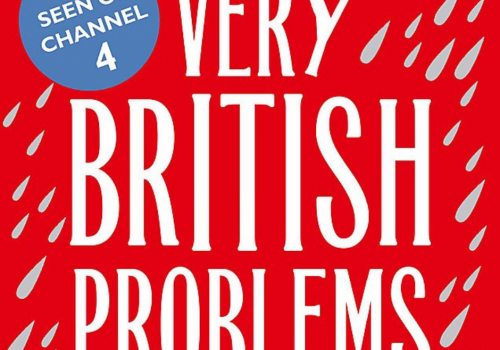Very British Problems

Jeszcze przed covidem trafiłem w Cambridge na książkę ”Very British Problems” Roba Temple. Przeleżała się na półce w domu, nietknięta, czekając na swoją kolej i wreszcie jej czas nadszedł.
Bardzo brytyjskie problemy okazały się całkiem sympatyczną lekturą, trochę w stylu ”Everything you really should know about GB” Emmy Marriott, która była bezpośrednią inspiracją do zakupu. Pamiętałem, że mi się podobała (książka, nie Emma), podobnie zresztą jak inna książka w tej tematyce ”Watching the English” Kate Fox. Ta ostatnia była chyba najlepsza z tej trójcy – napisana w nieco innym stylu, za to bardzo informacyjna, okraszona sporą dawką brytyjskiego humoru i wskazująca laikom, co tam w brytyjskiej duszy gra.
A tymczasem, wracając do ”Very British Problems”, zdradzę, że tak naprawdę chodzi o dwie książki, bo od razu zakupiłem też sequel pod tytułem… ”More Very British Problems”.
No więc kilka ekstraktów z tej pierwszej:
Z rozdziału „Food and drink dilemmas”:
- Being prepared to argue to the death, a tany given moment, over the correct method of making tea.
- Spending an entire meal debating whether to tell someone they have food on their face.
- The unwelcome surprise of someone telling you how they are after yo’ve asked tchem how they are.
- Revealing you don’t like tea and being stare dat as if you’ve just pissed on the table.
- Calling someone ‘mate’ forever because you’re worried you might pronounce their name incorrectly.
- 1992 – The first ever text message is sent, meaning from this year forth Brits are able to express something nearing emotion without the horror of having to look anyone in the face.
- 1971 – The United Kingdom decimalises its currency. In a bid to help people with the change from what we refer today as ‘old money’, a publicity campaign kick sinto full swing weeks before Decimalisation Day, which includes the cathily titled Max Bygraves song, ‘Decimalisation’.
Mariusz Siara


